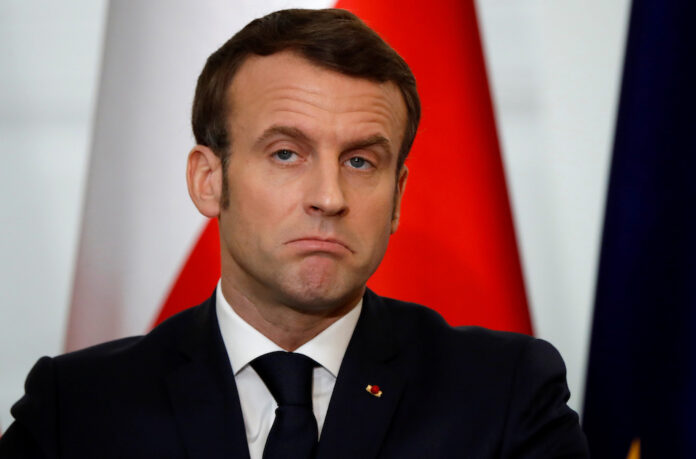PARIS: France has entered one of the most severe political crises in its modern history, with the collapse of Prime Minister François Bayrou’s government marking yet another chapter in a cycle of instability.
The turmoil has left President Emmanuel Macron, increasingly isolated, opposition forces emboldened, and the French public anxious about the country’s political and economic direction.
The roots of France’s current crisis lie in the June 2024 legislative elections, which delivered a hung parliament. Macron’s centrist alliance, Ensemble, lost its majority, while the left-wing New Popular Front (NFP) coalition emerged as the largest bloc.
Despite the NFP’s parliamentary advantage, Macron refused to appoint its nominee for Prime Minister, deepening distrust between the presidency and opposition lawmakers.
This refusal set off a power struggle that paralyzed governance. France endured an unprecedented 51 days of caretaker government after the resignation of Prime Minister Élisabeth Borne’s cabinet in July 2024, the longest such period in the Fifth Republic’s history.
Read also:
- Macron Appoints Close Ally Sebastien Lecornu as France’s New Prime Minister Amid Political Crisis
- Nigeria and France Sign Key Agreements as Zenith Bank and UBA Launch Operations in France
- France Election: PM Gabriel Attal set to resign on Monday morning Impeachment Moves: The NFP, frustrated with Macron’s refusal to recognize its mandate, filed for impeachment proceedings, further destabilizing the political atmosphere.
-
Bayrou’s Appointment: Macron later tapped François Bayrou, leader of the Democratic Movement party and a long-time ally, to steady the government.
-
But Bayrou faced hostility from both ends of the political spectrum, which viewed him as Macron’s proxy rather than a unifying figure.
-
The Confidence Vote: In September 2025, Bayrou put forward a debt-reduction plan aimed at curbing France’s ballooning public debt.
-
However, opposition lawmakers from the far right and far left joined forces to defeat him in a no-confidence vote, collapsing the government and leaving Macron with few immediate options.
Beyond parliament, the political turmoil has spilled into the streets. Trade unions and student groups have organized mass protests, warning that austerity measures tied to Bayrou’s failed plan would worsen social inequality.
The far-left leader Jean-Luc Mélenchon has demanded Macron’s resignation, arguing that the president has lost all legitimacy. Meanwhile, the far-right National Rally (RN), under Marine Le Pen, is capitalizing on disillusionment to position itself as the alternative power.
France has already seen sporadic strikes in transport, education, and energy sectors, with threats of nationwide shutdowns looming. Analysts warn that the country could face a prolonged period of civil unrest if political paralysis continues.
The political crisis comes at a dangerous moment for the French economy. Public debt has risen to record levels, unemployment is creeping upward, and investors are jittery about France’s ability to pass a credible budget.
The collapse of Bayrou’s government rattled markets, pushing up borrowing costs and raising fears of credit downgrades.
The stakes extend beyond France. As the eurozone’s second-largest economy, prolonged instability in Paris could undermine confidence in the European Union’s economic resilience.
The European Central Bank (ECB) is already monitoring developments closely, with France’s political paralysis likely to dominate discussions at upcoming eurozone finance meetings.
Macron now faces a stark set of choices. He could attempt to appoint another ally as Prime Minister, but without a working majority in parliament, such a move risks another swift collapse.
The alternative calling snap elections could hand more power to the far left or far right, both of which Macron has sought to keep from power.
Political observers believe that Macron’s presidency itself could be at risk if instability deepens. His refusal to compromise with the NFP has alienated large segments of the public, while his traditional allies appear weakened and divided.
France’s crisis is not just about parliamentary arithmetic; it reflects a deeper erosion of trust in traditional institutions. Many citizens feel disconnected from the political elite, skeptical of austerity driven policies, and wary of Macron’s leadership style, which critics describe as overly centralized and dismissive of parliament’s will.
For now, France finds itself at a crossroads. The next weeks will be decisive in determining whether Macron can salvage his presidency, or whether the Fifth Republic is heading toward a period of unprecedented political realignment.



